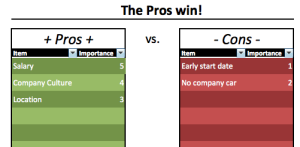 On Take Your Success, I regularly interview top-performing college students to understand how they’re successful, so you can recreate the success in your life. Take what’s helpful, dismiss what’s not!
On Take Your Success, I regularly interview top-performing college students to understand how they’re successful, so you can recreate the success in your life. Take what’s helpful, dismiss what’s not!
This week I interviewed Nicole Ward, and she definitely delivered.
For background on Nicole, she is a nursing major at the University of Virginia (an extremely reputable program in an excellent school). Also, you’ll see how Nicole’s loving personality shines through in her answers. I can already tell that she has prepared herself for an outstanding career in nursing.
In this extensive interview, you’ll get insights into aligning yourself with your career, a unique time-management tip, and more. Let’s get to it!
——
Brian: What do you believe was the most important factor for your acceptance to the University of Virginia?
Nicole: It’s hard to pinpoint the one factor that was most influential in my acceptance to the University of Virginia. The year I applied, the admissions board accepted only 10% of applicants into the nursing school. Therefore, it’s fairly important to maintain a high GPA in high school and they do take your SAT scores pretty seriously. That being said, I did not have a 4.0 and my SATs were far from perfect. So although they are important, UVA looks at more than just the numbers.
If I were to have to narrow it down, I believe there were two factors that set me apart from other applicants. The first of these would be my recommendation letters. Forming and maintaining good relationships with your high school teachers is vital in the college application process. The teachers who wrote my recommendations knew me well—we spent a lot of time together outside of the classroom. Two of them were not only my teachers (AP Calculus and AP U.S. history), but also my coaches (rowing and cross country). Because they knew me well, they were able to write great recommendations and I believe that was a huge factor in my acceptance into UVA.
The second key factor that I believe got me into UVA was my essay. The essay portion is your chance to reveal who you are in just a few words. It needs to be creative and personal. For the nursing school, this is your one opportunity to tell them why you want to be a nurse. They need to know you’re passionate and motivated (because quite honestly, you need both of those qualities to survive). I believe that the essay is one of the most heavily weighted portions of the application.
As a concluding thought, I think it’s important to mention that I applied directly into the nursing school, so what worked for me may not work for those applying to the College or the Engineering school.
Brian: Why do you want to be a nurse?
Nicole: My passion for nursing began when my dad was diagnosed with renal cell carcinoma (kidney cancer). After he was diagnosed, my family began to spend a lot of time at the University of Virginia hospital. The more time we spent at the hospital, the more I realized the incredible impact nurses have on patients and their families. My dad’s good days and bad days were often determined by the competence and compassion (or lack thereof) of his nurse.
I cannot think of a better occupation than to care for those who are at their lowest point—to come alongside patients and their families when they are discouraged and to celebrate with them in the little (and sometimes big) victories. I feel so honored, humbled, and excited that I get to be a nurse and directly impact peoples’ lives every time I go into “work.”
Brian: What is your advice for doing well in nursing classes? And how are they unique from other classes?
Nicole: Nursing classes are awesome because you get to directly apply what you’re learning in the classroom to your clinicals (hospital hours). I think the best advice I can give for doing well in school is to continually think of the big picture (E.g. remember the systems of the body and consider how each illness/ disease might affect that system).
Also, take full advantage of your clinical hours. The more time I spend in the hospital, the more I understand the classroom material.
Brian: Is there any specific medical topic that you’re interested in? Why?
Nicole: Initially I would love to be in the ER or ICU. These floors offer a fast pace environment, where I would see a wide variety of diseases/ injuries and would inevitably learn a lot. After this, I would like to back to graduate school to become a nurse practitioner, at which point I think I would like to switch my focus to Oncology (the study and treatment of tumors).
Oncology is such a fascinating field and I think it’s incredible how we’re constantly learning new information about it and coming up with new medications to help fight it. I would love to be a part of this battle.
Brian: What time-management/ productivity tips have worked for you?
Nicole: I guess one tangible time-management tip that has worked for me (which I learned from my roommate) is to make a priorities list. At the beginning of each semester, I write down all of the things I’m involved in and then I prioritize them.
Once I have done this, throughout the semester, I look at what I’m spending the majority of my time doing and evaluate whether or not it aligns with my list. If it doesn’t, then I either readjust my time commitments or I consider changing my priorities list.
Doing this allows me to ensure that I’m balancing my time appropriately. (It’s important to note that some commitments don’t take as much time as others, but that doesn’t have to mean they belong lower on the priority list—it’s more about what carries the trump card).
Although school is definitely important, it’s not my number one priority. I’ve learned the hard way, however, that there’s an important balance between not being completely consumed by school and not letting it slide too far down the priority list. This balance is extremely important to find and it’s different for each individual.
Brian: Who is your role model and why?
Nicole: Although I have many incredible ones in my life, my dad is definitely my biggest role model. The way he cared for others above himself even when his health was failing will forever be my inspiration. He was not only compassionate, but full of adventure as well. This sense of adventure is something he instilled in all of his children, which I am so thankful for.
Brian: Tell me what else you’re passionate about (outside of medicine).
Nicole: One thing I’m really passionate about outside of medicine is traveling. I love meeting new people, learning about different cultures, and experiencing God through His creation. This Earth is so beautiful and every time I visit a new place, my love for the Lord grows. It’s my dream to see the World (or at least as much of it as I’m able).
Brian: What are your plans for after graduation?
Nicole: Right after graduation, I’ll be waiting to find out if I passed the NCLEX, so during this time I would love to travel. After this, I’ll hopefully get a job at a hospital—preferably somewhere outside of Charlottesville, since I’ve been here all my life. I think I would like to live in Colorado or somewhere else that has tons of mountains for hiking and skiing. Really, I’m up for anything, though!
——
The most important takeaway I found in this interview is how Nicole Ward aligned her passion and interest with her career plan. She recognizes the importance of nurses (from the experiences involving her dad) and her care for people as driving forces in what she wants to do. Because she aligned her passion and interest, Nicole found clarity in the vision of her future work.
Apply this to your life to find a clear vision for your career. Reflect and answer: What are you passionate about? What are you interested in? What are you (slightly) good at?
Also, I totally see the benefit in the time-management tip, Nicole mentioned, of writing down a priority list at the beginning of a semester. Try doing this before your next semester and use it as a reality check for when you’re in a busy season.
Readers, comment below on: How are you going to effectively align yourself with your career? What are your top priorities in college? What did you find most interesting from this interview?


